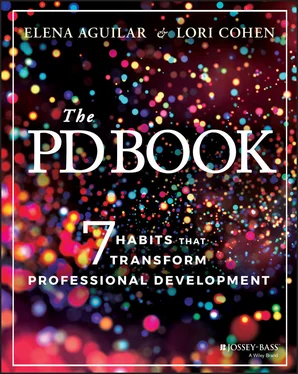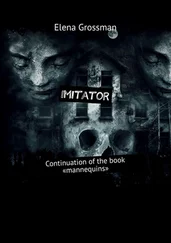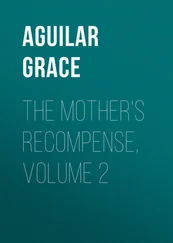Elena Aguilar - The PD Book
Здесь есть возможность читать онлайн «Elena Aguilar - The PD Book» — ознакомительный отрывок электронной книги совершенно бесплатно, а после прочтения отрывка купить полную версию. В некоторых случаях можно слушать аудио, скачать через торрент в формате fb2 и присутствует краткое содержание. Жанр: unrecognised, на английском языке. Описание произведения, (предисловие) а так же отзывы посетителей доступны на портале библиотеки ЛибКат.
- Название:The PD Book
- Автор:
- Жанр:
- Год:неизвестен
- ISBN:нет данных
- Рейтинг книги:5 / 5. Голосов: 1
-
Избранное:Добавить в избранное
- Отзывы:
-
Ваша оценка:
- 100
- 1
- 2
- 3
- 4
- 5
The PD Book: краткое содержание, описание и аннотация
Предлагаем к чтению аннотацию, описание, краткое содержание или предисловие (зависит от того, что написал сам автор книги «The PD Book»). Если вы не нашли необходимую информацию о книге — напишите в комментариях, мы постараемся отыскать её.
The PD Book,
The PD Book
The PD Book — читать онлайн ознакомительный отрывок
Ниже представлен текст книги, разбитый по страницам. Система сохранения места последней прочитанной страницы, позволяет с удобством читать онлайн бесплатно книгу «The PD Book», без необходимости каждый раз заново искать на чём Вы остановились. Поставьте закладку, и сможете в любой момент перейти на страницу, на которой закончили чтение.
Интервал:
Закладка:
When we began providing PD, we had thoughts like, I want to welcome people into the room the way I once observed Mr. G , and I never want to talk down to teachers like Mrs. K did . We identified behaviors and ways of being we wanted to replicate and ones we intended to reject.
We also thought about the overall feeling of PD. We'd been to many PD sessions that felt tedious and dreary; we wanted to create learning experiences that felt refreshing and gratifying. We wanted people to say, “That went by so fast!” And, “When is our next session?” We wanted to observe participants walking to their cars together afterward still talking about the content and laughing and exchanging contact information. We knew that if PD felt good, participants would be more likely to want to come, to show up eager to learn, and to take risks and ask questions, and ultimately, we knew that more learning would occur.
We're now going to present an extreme dichotomy: When characterizing the atmosphere of PD, on one end of the continuum, PD can feel like a punishment, like a prison. On the other end of the continuum, PD can feel like a festive gathering of friends. Most of us have probably attended a lot of PD that falls in the middle: It's fine, but immemorable. We wonder, what if PD could feel more like a party?
This question elevates one of our primary beliefs about what it takes to create transformative PD, which is that transformative PD occurs when the learning atmosphere feels very different than what we're typically accustomed to. When we suggest that PD could feel like a party, we're not actually imagining a large, loud, raucous gathering in which people have superficial conversations. We're referencing the aspects of a party that are universally appreciated: a sense of celebration, a clear and meaningful purpose for convening, the possibility of being with others whose company you appreciate, and perhaps also something that makes the gathering feel special—whether that is the food, the location, the decorations, or just the way you're made to feel like your presence is truly welcome.
Imagining PD as being like a party—or more like a party—has become a conceptual aspiration for us. Again, just to be clear: Neither of us would say we love parties; no one we know would describe us as “party people.” But we love the possibility embedded in thinking about PD as being like a party. This metaphor evokes an energy that is a sharp contrast to what characterizes most learning spaces, and so it serves as a useful counterpoint to work toward.
If PD was more like a party, you'd see teachers sitting in small groups around a fire telling each other stories; you'd hear people expressing affection and appreciation for each other and wondering how they'd been matched up in the same group together. You'd also see people having hard conversations and challenging each other's thinking, and you might witness educators grappling with new ideas and skills. PD would still be purposeful and rigorous and structured. But the atmosphere would be lighter, more joyful, and characterized by meaningful connections between participants.
When we say, “What if PD could be like a party?” we're pointing toward the possibility of a gathering that feels very different from traditional PD, toward the social and emotional conditions needed for deep connection and learning. That said, we're also not opposed to the occasional costume, streamer, or rock‐paper‐scissors tournament. As we share the habits you can use to create transformative PD, we'll occasionally bring you back to this notion that PD could be something that feels fundamentally different from the typical PD experience, that perhaps PD could feel more like a party.
The Principles of Transformative PD
While we've got one big vision for transformative PD feeling more like a party, beneath the seven habits we outline in this book are a set of deeply held beliefs. We want to surface these, name them, and share them with you so that you know where we're coming from. As you read our principles, consider which ones resonate with you. The following are the Principles of Transformative PD:
Humans are bursting with untapped resilience, strength, and abilities. We have an unfathomable capacity to change and transform, to grow and learn, to love and connect with others. Given the right conditions, we can unlock our potential.
Teachers create the conditions in which transformative learning happens; we embrace this opportunity as our responsibility.
Learning is a basic human need. Human beings want to develop and grow and fulfill our potential, and then we want to grow some more.
Learning is a social process. Human beings are social creatures—we need each other to learn; we learn exponentially more when we're in healthy community than when we learn alone.
Learning is the pathway to justice, healing, and liberation. For justice, healing and liberation to exist, there's a tremendous amount that needs to change. The only way for us to change is by learning. The only way for us to heal and repair our beautiful, broken world is by learning. If we can figure out how to learn and how to create spaces for others to learn, we can be free.
Learning is transformative when the whole range of human emotions are experienced, including joy and love.
Who We Are and Who You Are
If we were physically in the same room, we'd engage you in activities to get to know each other. One of our favorites when we do workshops is to name a number of categories and ask folks to stand (if standing is accessible to them) if the category applies to them. For example, we'll say, “Stand if you come from a family of educators” or “stand if you love teaching middle schoolers” or “stand if you serve the community in which you were raised.” This is a quick activity that gives folks a sense of who is in the room. Sometimes we insert a humorous category so that we can get people laughing and help them relax. We follow this activity by introducing ourselves as your facilitators. We'll do the same thing, now, in written form, of course.
Who We Are: The Authors
We are both life‐long educators who share a deep commitment to tikkun olam , the Jewish concept of healing and transforming the world. We also both love words; we love reading and writing, drinking coffee, and eating cheese; and we're drawn to the redwoods and the Pacific Ocean. We can be shy and socially awkward but thrive in healthy communities, so we seek to create communities where each person is seen for who they truly are. We both still design and deliver PD almost every week.
Lori has worked in both public and independent schools since 1999, as a teacher, instructional coach, administrator, and facilitator. Early on in her career, Lori realized she had two great loves in education: teaching young people and teaching adults. She has had the good fortune to do both, bringing an infusion of humor and heart to every learning experience. Throughout Lori's leadership journey, equity has been a central lens through which she creates the conditions for transformational learning. Lori identifies as a Jewish, queer, white, cisgender, English‐speaking woman. She was a first‐generation college student who put herself through school; this experience informs Lori's big questions about equity and access, power, and privilege.
Elena became a teacher in 1994 and spent 19 years working in the Oakland, California, public schools, where she was a teacher, instructional coach, leadership coach, and administrator. Following the publication of her first book, The Art of Coaching (2013), Elena founded Bright Morning Consulting and began delivering professional development sessions across the United States and abroad. Her trainings are based on her model of Transformational Coaching and on her books on team development ( The Art of Coaching Teams , 2016), resilience ( Onward , 2018), and educational equity ( Coaching for Equity , 2020). Elena is also the host of the Bright Morning Podcast where she models coaching conversations. Elena identifies as Latina and Jewish, as a cisgender, heterosexual woman, as a Spanish‐bilingual immigrant, and with the lower socioeconomic status of her childhood. In addition, she is a mother. These identity experiences profoundly affect how she thinks about education, learning spaces, and community.
Читать дальшеИнтервал:
Закладка:
Похожие книги на «The PD Book»
Представляем Вашему вниманию похожие книги на «The PD Book» списком для выбора. Мы отобрали схожую по названию и смыслу литературу в надежде предоставить читателям больше вариантов отыскать новые, интересные, ещё непрочитанные произведения.
Обсуждение, отзывы о книге «The PD Book» и просто собственные мнения читателей. Оставьте ваши комментарии, напишите, что Вы думаете о произведении, его смысле или главных героях. Укажите что конкретно понравилось, а что нет, и почему Вы так считаете.












